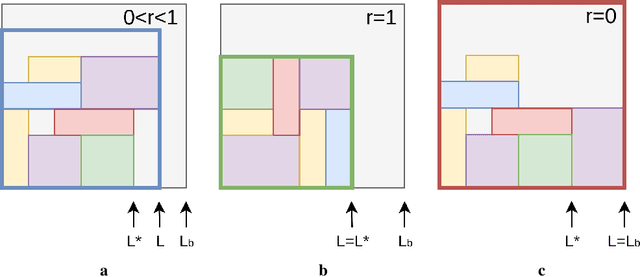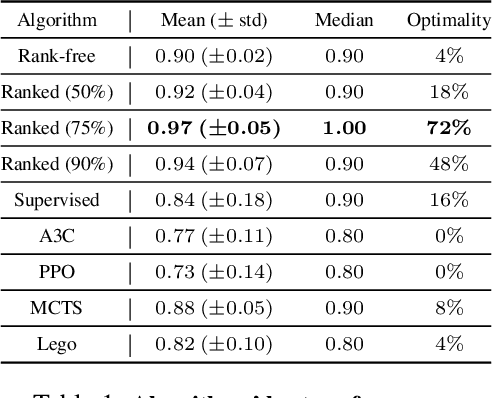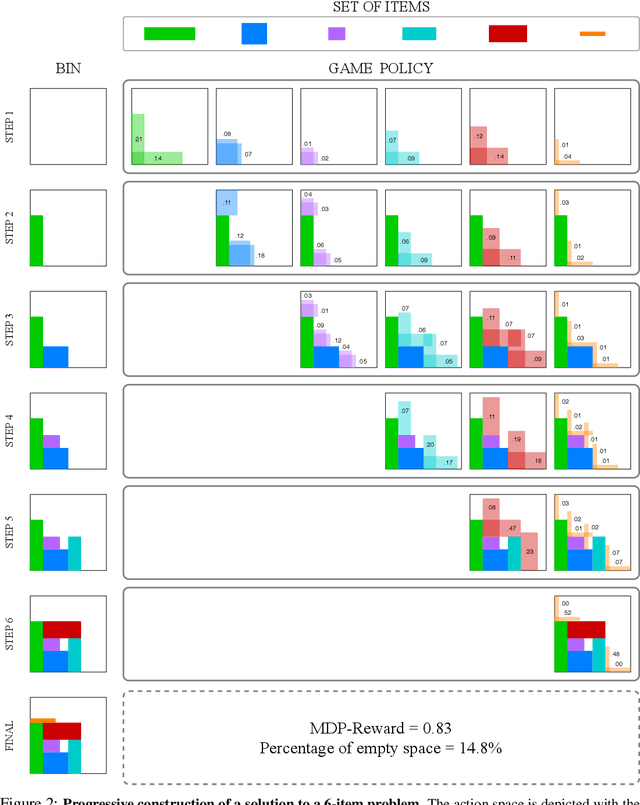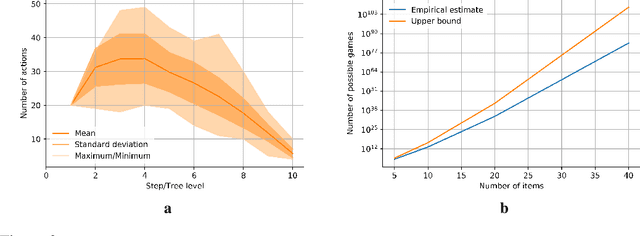David Kas
Learning Compositional Neural Programs with Recursive Tree Search and Planning
May 30, 2019



Abstract:We propose a novel reinforcement learning algorithm, AlphaNPI, that incorporates the strengths of Neural Programmer-Interpreters (NPI) and AlphaZero. NPI contributes structural biases in the form of modularity, hierarchy and recursion, which are helpful to reduce sample complexity, improve generalization and increase interpretability. AlphaZero contributes powerful neural network guided search algorithms, which we augment with recursion. AlphaNPI only assumes a hierarchical program specification with sparse rewards: 1 when the program execution satisfies the specification, and 0 otherwise. Using this specification, AlphaNPI is able to train NPI models effectively with RL for the first time, completely eliminating the need for strong supervision in the form of execution traces. The experiments show that AlphaNPI can sort as well as previous strongly supervised NPI variants. The AlphaNPI agent is also trained on a Tower of Hanoi puzzle with two disks and is shown to generalize to puzzles with an arbitrary number of disk
Ranked Reward: Enabling Self-Play Reinforcement Learning for Combinatorial Optimization
Jul 06, 2018



Abstract:Adversarial self-play in two-player games has delivered impressive results when used with reinforcement learning algorithms that combine deep neural networks and tree search. Algorithms like AlphaZero and Expert Iteration learn tabula-rasa, producing highly informative training data on the fly. However, the self-play training strategy is not directly applicable to single-player games. Recently, several practically important combinatorial optimization problems, such as the traveling salesman problem and the bin packing problem, have been reformulated as reinforcement learning problems, increasing the importance of enabling the benefits of self-play beyond two-player games. We present the Ranked Reward (R2) algorithm which accomplishes this by ranking the rewards obtained by a single agent over multiple games to create a relative performance metric. Results from applying the R2 algorithm to instances of a two-dimensional bin packing problem show that it outperforms generic Monte Carlo tree search, heuristic algorithms and reinforcement learning algorithms not using ranked rewards.
 Add to Chrome
Add to Chrome Add to Firefox
Add to Firefox Add to Edge
Add to Edge